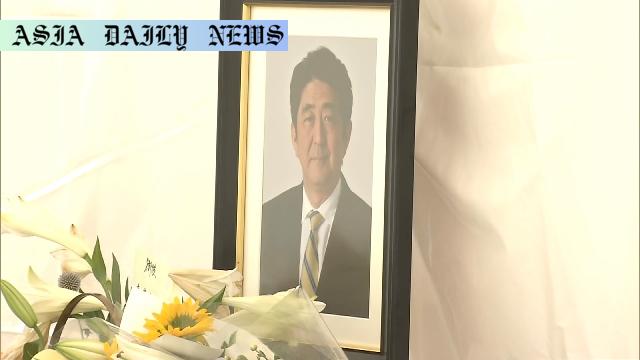Abe Shooting – Many visited Nara City to pay respects three years after ex-PM Abe was fatally shot during a campaign speech.

Reflecting on Abe Shinzo’s Legacy
July 8, 2023, marks three years since former Japanese Prime Minister Abe Shinzo was tragically assassinated during a campaign speech in Nara City. As Japan continues to process the shock of this unprecedented incident, the nation has used this time to reflect on Abe’s significant contributions to Japanese economic growth, foreign policy advancements, and his vision for a stronger nation. Abe, Japan’s longest-serving prime minister, left behind a remarkable legacy that continues to influence political landscapes, not just in Japan but globally.
On the solemn anniversary, many citizens gathered near Yamato-Saidaiji Station, where Abe was mortally wounded. Individuals from all walks of life attended, bringing flowers and standing together in a moment of silence at 11:31 a.m., the exact time of the incident. Discussions during the gathering highlighted the regret and sorrow that still permeate communities across the country. A man in his sixties, hailing from Nara City itself, encapsulated this sentiment, sharing his belief that Abe’s political and social aspirations were tragically left unfulfilled.
The Assassin and Ongoing Trial
Yamagami Tetsuya, aged 44, has been charged with multiple offenses, including murder and possession of illegal weapons. The trial has become a focal point of public interest, drawing attention to the motivations behind Yamagami’s actions. In his confession, Yamagami revealed a deep-seated resentment against the religious organization known previously as the Unification Church. This was influenced by significant financial contributions his mother had made to this group, which he believed financially and emotionally devastated their family.
The case has raised questions about the intersection of personal grievances, politicized violence, and the actions of organizations operating with potentially exploitative practices. Legal proceedings have concentrated on case specifics, with seven pretrial hearings already conducted. Yamagami reportedly does not intend to contest the murder charge, positioning the trial’s focus around his motivations and how they might influence sentencing severity. Observers anticipate a ruling on the case early next year.
The Broader Social Context
The Abe shooting has also reignited broader discussions on political safety, gun control regulations, and societal dynamics in Japan. Japan, often seen as one of the safest nations globally, was shaken by this act of political violence. It prompted calls for enhanced security measures at political events, along with tighter regulations to prevent the illegal acquisition of firearms.
Additionally, the event brought attention to concerns regarding influential religious organizations, such as the Unification Church, and their societal influence. Yamagami’s connection to the organization has spurred investigations and debates over ethical transparency and regulatory oversight of such institutions. This issue extends beyond Japan, as global societies increasingly grapple with balancing religious freedoms against potential abuses or undue pressures.
Looking Ahead
As Japan continues to navigate the aftermath of Abe Shinzo’s assassination, his legacy remains a touchstone for those advocating for a resilient, forward-looking Japan. While the trial of his accused killer will finally bring legal resolution to this tragedy, it is evident that Abe’s influence spans far beyond the confines of his lifetime. His vision, initiatives, and commitment to Japan’s prosperity continue to inspire citizens and leaders alike.
This tragic event has left lasting reverberations, offering lessons in political vulnerability, societal interconnectedness, and the pressing need for empathy and understanding in a complex modern world.
Commentary
Abe Shinzo’s Visionary Leadership
Abe Shinzo’s tragic assassination three years ago served as a stark reminder of both the fragility of life and the enduring influence of a visionary leader. Abe’s tenure as Japan’s prime minister was marked by ambitious reforms, including his signature economic policies, popularly known as “Abenomics.” Citizens and observers alike admired his determination to revive Japan’s economy, strengthen its defense capabilities, and foster active diplomacy in an increasingly interconnected world.
The Sociopolitical Ripple Effect
The circumstances surrounding Abe’s assassination, including Yamagami Tetsuya’s motivations, shed light on deeper societal issues. This event acted as a catalyst for a nationwide reevaluation of public safety, gun regulations, and institutional accountability in Japan. While the tragedy was shocking, it underscored the importance of ongoing vigilance and systemic reform, urging leaders to listen closely to the grievances and hardships of their populace.
A Call for Introspection and Healing
As the legal proceedings for Yamagami’s trial approach their conclusion, they serve not only as a quest for justice but as an opportunity for collective reflection. How do we, as a society, mitigate the conditions that lead to such desperate acts? This question is critical as both Japan and the world seek to foster more inclusive, equitable societies.


